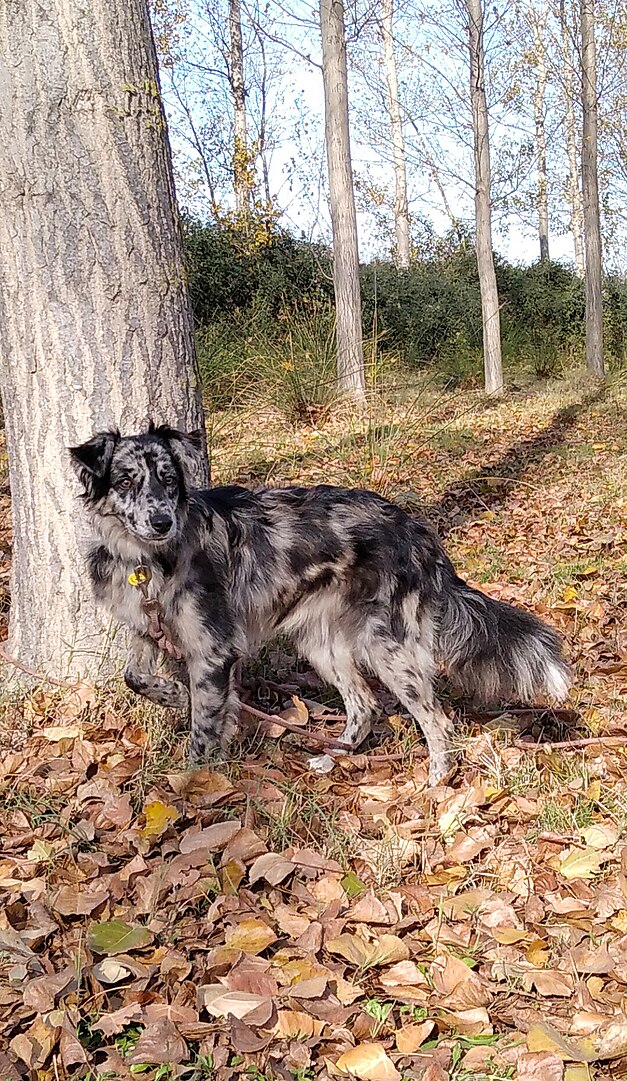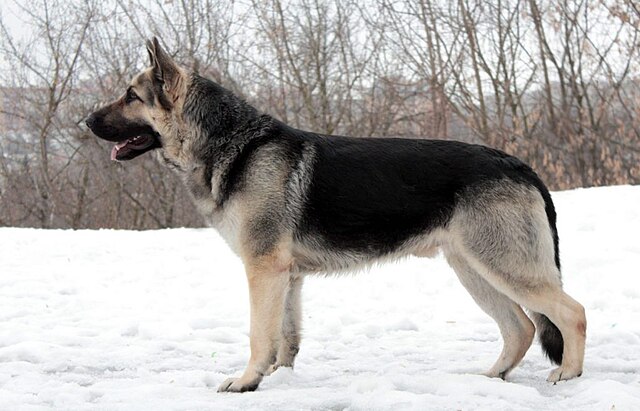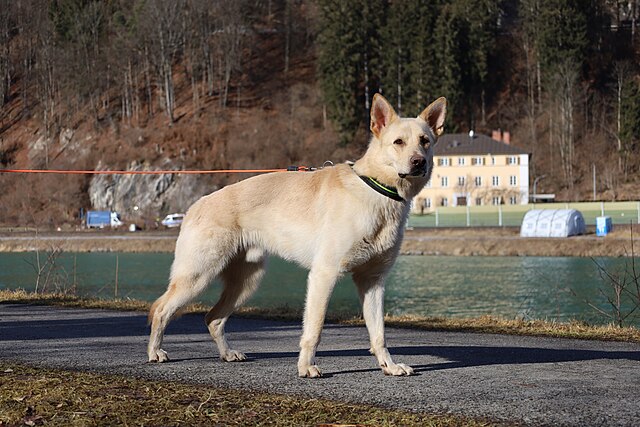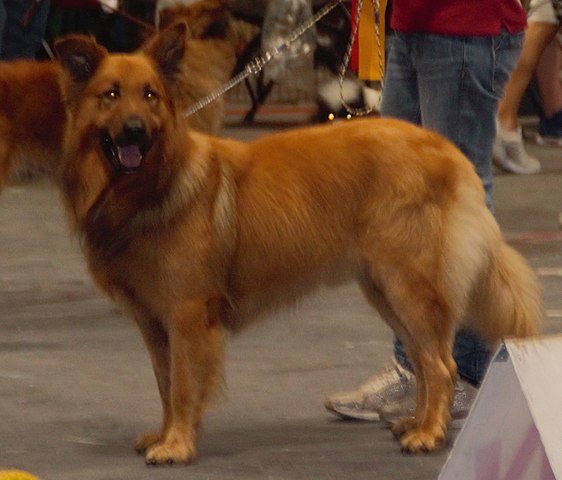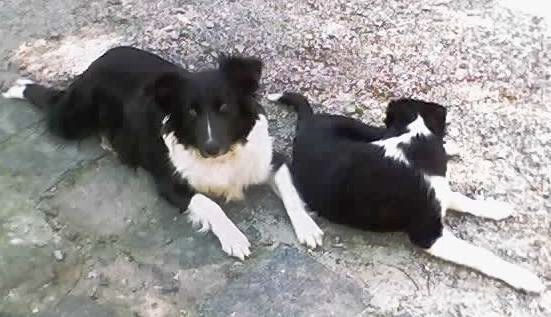The Leonese Sheepdog is a herding breed from Spain, and a likely ancestor of the Australian Shepherd. An extremely rare breed with only around 500 specimens, they are recognized by the Royal Canine Society of Spain but are otherwise relatively unknown. In fact, fanciers of the breed are working towards getting them more well known as they fear the breed will go extinct without careful intervention. This breed is known for being very alert and agile while working, and they are talented at their herding jobs – being able to work in any weather condition but especially the harsh cold. Like most herding breeds they are very active and intelligent. Not only do they possess natural herding abilities, but are quick to learn the more intricate details that are taught to them in training sessions. Traditionally they work with Spanish Mastiffs out in the field – the larger breed taking care of protection duty while the Leonese manages the movement of the flock.
The Leonese Sheepdog is a brave and courageous dog. Although their original task was that of a herding breed rather than a guard, they still needed enough courage and tenacity to take on an unruly flock. Able to work sheep, goats, horses or cattle, sometimes the flocks could be difficult to manage and so it was important that they had a “spitfire” temperament that would bite back if needed! It is this temperament that allowed them to do their job, but also means that they don’t always get along with other dogs. Neither are they the best choice in a home with children as they were built to be working dogs and not family dogs.
The Leonese isn’t a big fan of strangers and would much rather be with his owner, whom he tends to form a deep attachment to. Although he isn’t known for being overly demonstrative with his affection, he is eager to please his owner and is a quick-study. He loves to learn as long as it means spending time with his favorite person! He is not known to be overly bossy or stubborn to his owner although can be territorial towards strangers who encroach upon his turf. It is important to socialize this breed early, for he can become somewhat aggressive towards those he doesn’t know without this important early socialization. Even with socialization he is aloof at best – shy and nervous at worst.
The Leonese Sheepdog is a breed that needs lots of daily exercise and room to run, and as such has been traditionally used as a working dog rather than a pet. The breed does best living in the countryside or in a home with a large fenced yard. He would be a bad match for someone living in the city and an even worse match for someone living in an apartment! He also needs plenty of mental stimulation as well, in the form of training, puzzles and other stimulating activities. The average dog owner would not be a good match for active breed as it takes someone with enough energy and the right location to keep up! Ideally, an owner would have a flock for the dog to work but if not, dog sports can be a substitute. This breed can compete successfully in sports such as obedience, flyball, herding, agility, conformation, and tracking. He is recommended only for experienced owners.
The Leonese is a medium sized dog with a pointed muzzle and ears that are either hanging or rose (and can be semi-erect when alert). The tail is long and carried low in a sabre fashion. The double coat can be either short or medium in length, can be slightly curly, and can come in either black or harlequin. Either of these colors can include tan points, but don’t need to. The breed as a whole is incredibly healthy, with no major health issues associated with it. Overall the average lifespan is 12-13 years.
The Leonese does require some grooming, particularly the medium coated variety. He needs to be brushed a couple times a week (especially during shedding season) and given a bath every 6 weeks. Working dogs that are frequently outside need regular checks of their skin and coat to be sure brambles and other spiky plant life isn’t embedding itself in the skin. Otherwise, making sure that the dog is being fed a good food, getting regular exercise and routine vet care will all help to ensure a healthy dog inside and out!
